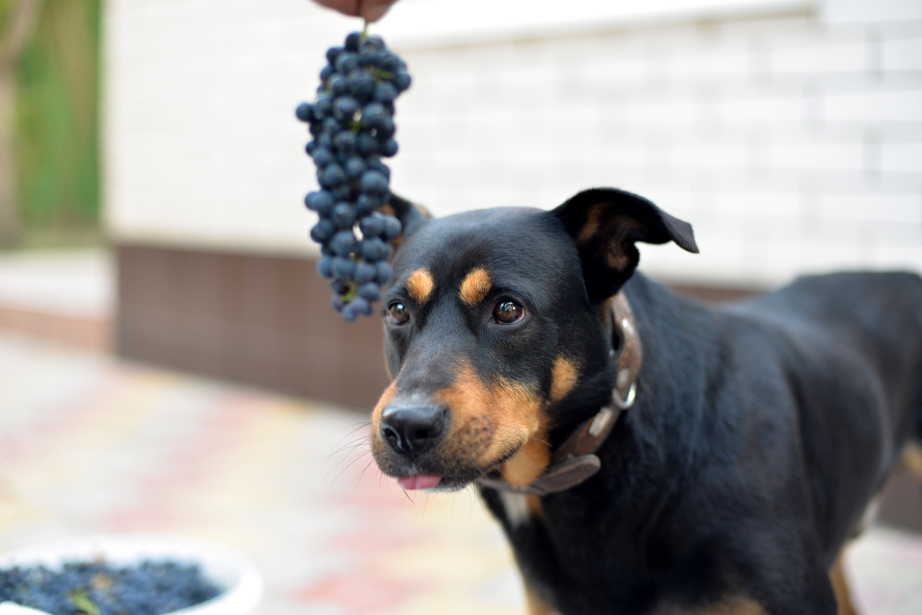
Grapes tick multiple boxes for humans. The fruit is thirst-quenching, sweet-tooth satisfying, filling (thanks, fiber), and packed with antioxidants that keep the body running long and short term. As a pet parent, you naturally want to provide your dog with the same benefits.
However, some foods that are super healthy for humans are toxic to dogs. You want special treats — like human foods — to be a fun bonding experience between you and your pup and for feeding strategies to focus on health. Therefore, understanding which foods are healthy (or at least safe to feed) and which aren’t is important. Can dogs have grapes? Let’s dig into what we know and what to do if your pup consumes a grape.
Can dogs have grapes?

Dogs shouldn’t have grapes. We know. Those soulful brown eyes begging for a grape are hard to look away from, but this fruit poses severe health risks for dogs. Grape toxicity can cause kidney failure in dogs, a potentially fatal issue. Scientists are still trying to determine precisely why grapes are toxic for dogs. However, pups cannot metabolize this juicy fruit’s tannins, flavonoids, and monosaccharides like humans can.
FYI, the no-grape rule applies to the fruit in all forms, including:
- Peeled
- Unpeeled
- Seeded (which also poses choking risks)
- Unseeded
- Raisins (dried grapes)
- Juices (which often have added sugar that can put dogs at greater risk for diabetes and exacerbate blood glucose issues in those with the disease)
Raisins can also be found in snacks like trail mixes, which may contain healthy nuts for dogs (such as walnuts). Be sure to check ingredient labels before treating your pup.
What happens if my dog eats grapes?

Call the vet or poison control. Dogs can throw even the most attuned pet parents for a loop. Perhaps your typically well-trained pup ignores your cue to “leave it” when you drop a grape on the floor, or the little rascal breaks into your pantry and helps themselves to trail mix.
Unfortunately, we don’t know how many grapes a pup needs to consume to experience symptoms of toxicity, and every pet’s body is different. For this reason, you’ll want to seek expert medical advice immediately instead of waiting for symptoms to develop. The ASPCA’s Animal Poison Control Center (APCC) number is (888) 426-4435, or you can give your pet’s vet a ring.
The vet can induce vomiting to help your pet avoid complications before they start. Signs your pet may be experiencing grape toxicity already include:
- Reduced appetite
- Increased thirst
- Peeing more or less frequently than usual
- Decreased energy/increased fatigue
- Weakness
- GI discomfort, like vomiting or diarrhea (these symptoms typically occur within a few hours of consumption)
- Dehydration
If you have not already, call the vet right away if you notice these symptoms.
Dogs should not have grapes in any form, including raisins or juice. While we don’t know precisely why grapes can be toxic to dogs, they can cause kidney failure and other uncomfortable symptoms, such as GI discomfort. Call the vet or poison control if your dog consumes grapes. Prompt medical attention can increase the chances of the best outcome. Give your dog treats specifically designed for them or safe human foods like blueberries. Your dog’s diet should consist of at least 90% dog food. Your pet’s vet can give more safe, healthy diet advice.



